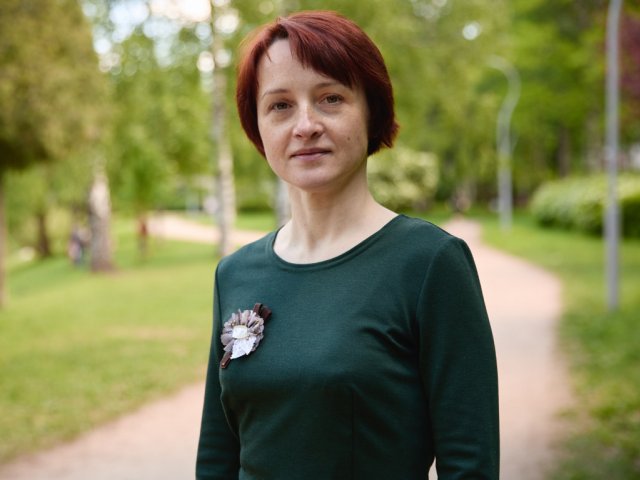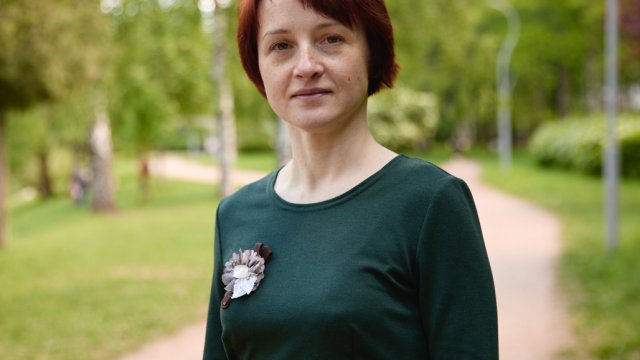On May 27, international academic symposium Pandemic: Reset of Russian and Foreign Healthcare Systems was held within the framework of 9th International Congress Orgzdrav 2021. Russian and foreign scientists discussed the existing coronavirus vaccines, outlined the risks of this disease and estimated the statistics.
Photo: orgzdrav2021.vshouz.ru
Before the round table of the Russian Academy of Sciences (RAS) COVID-19: From Development of Vaccines to Collective Immunity, RAS President Alexander Sergeev addressed the symposium participants with a welcoming speech: “Unprecedented efforts were hurled into the development of vaccines: over a hundred of research institutions and pharmaceutical companies from all over the world. They used both classic technologies of introducing inactivated virus or its or proteins into human organism, and advanced ones based on genetic techniques. The latter envision sending with the help of modern methods the instructions in the form of DNA and RNA fragments, and the respective proteins are produced by human cells on their own. Today, the healthcare system uses over ten types of COVID-19 vaccines, and almost 400 million people have been vaccinated.”
Among the speakers at the symposium, there were the representatives of three companies that have produced domestic vaccines – Gamalei Center, Vector, and Chumakov Center. The specialists highlighted the process of manufacturing vaccines, the respective clinical studies, the efficiency and prospects of the drugs. Sputnik V was the first domestic coronavirus vaccine.
Head of Laboratory for Mechanisms of Pathogenic Microorganisms Population Variance at the Gamalei Center Vladimir Guschin dwelled upon the vaccine’s benefit. They are the medication low price – less than $10 – and a possibility of storage at the temperature from +2 to +8 degrees. The latter advantage allows for distributing the vaccine without any special conditions. The representative of Gamalei Center was asked why the cases of infection still occur after vaccination with Sputnik V. “It is a balance of immune system’s responses. The better the antibody cell link has worked, the more likely is that this person will not fall ill. Yet, as people have different immune systems, and all of us are laden with comorbid conditions to a different extent, rare cases of falling ill still occur. It is important to understand and explain that the probability theory works here, and vaccination dramatically reduces the disease severity,” Vladimir Guschin answered. He stressed that the vaccine’s efficacy for all age groups is estimated at 90%. The effect starts 3 weeks after the injection of the first dose.
Peptide vaccine EpiVacCorona was presented by director general of Vector Center Rinat Maksyutov. “The peptide vaccine platform is actively used globally for developing vaccines for both oncological diseases and various contagious ones. At present, over 410 peptide vaccines are undergoing clinical trials,” he said. According to Maksyutov, it is planned to introduce amendments to the registration documents of EpiVacCorona vaccine in mid-June – along the form in ampules, syringe dispensers will be produced.
The third COVID-19 vaccine registered in Russia is CoviVac developed by the Chumakov Center. Director general of the Center, RAS correspondent member Aidar Ishmukhametov dwelled upon the benefits of inactivated vaccines. These are the possibility of using the existing production capacities for manufacturing them, which reduces the period of the product development and launch, good induction of neutralizing antibodies against the viral agent, and long-term protection of human organism. Aidar Ishmukhametov believes that it is possible to use both influenza and coronavirus vaccines simultaneously. The creation of combined vaccines is also theoretically possible, but this task will hardly be accomplished before the coming fall. This is what he said answering the questions.
Pregnant women, especially the ones with comorbid conditions like pulmonary diseases, arterial hypertension, and especially diabetes, are also at risk with regard to coronavirus. During the pandemic, the risk of premature delivery has risen among the female patients infected with coronavirus, while their babies needed intensive care more often than others. However, the physicians rule out the vertical transmission of virus – the disease was not found in babies born by women suffering from COVID. Neither was the virus found in breast milk. Obstetrician-gynecologist Leila Adamian, RAS academician, emphasized that it is not worth planning a baby earlier than 2-3 months after having gone through the disease, as post-COVID complications are possible.
The problems dealing with blood clotting and thrombocytes have been discovered in COVID-19 patients. Moreover, they are very much pronounced and feature certain frequency. “The first reports from China showed a high rate of thrombotic complications in patients with coronavirus infection. We cannot quote the exact figures yet, as some of the patients have suffered from the symptom-free form. Nevertheless, individual reports say that this rate can reach 20% and more for the patients who check into hospital. The bleeding disorders are more pronounced in patients suffering from a severe form of the disease,” director of the Center for Theoretical Problems of Physical and Chemical Pharmacology, RAS correspondent member Mikhail Panteleyev said.
Director of the Research Medical Center of Therapy and Preventive Medicine, RAS correspondent member Oksana Drapkina spoke about the drugs used for treating coronavirus, statistics with regard to vaccination, mortality and recovery, as well as hospitalization level: “The first 5 days are the most important and dangerous for taking decisions as to the disease progression and the need for hospital confinement.” According to her, the number of antibodies in the organism is higher for the patients having gone through the disease if compared to ones vaccinated. There have been cases of these antibodies being present in human organism for up to 1 year. Sometimes, however, they may vanish as early as after two months after recovery.
Geopolitical, socio-economic and psychological consequences of pandemic were highlighted at international round table by speakers from Russia, India, South Africa, Brazil, United Kingdom, and China.
In particular, it was emphasized that the forecasted levels of international trade balance negative dynamics were estimated at higher figures if compared to real ones. “In mid-2020, we saw a lot of media publications including the estimates of serious international organizations. They forecasted 30% decline in global commerce. In reality, we have seen the decline of 7-9%. These are also serious figures, but they show that the negative forecast scenario has overestimated the short-term impact of pandemic,” RAS correspondent member, director of the Primakov Research Institute of Global Economy and International Relations Fyodor Voytolovsky said dwelling upon the economic consequences of the pandemic.
The socio-psychological consequences of pandemic were assessed by head of Socio-Economic Psychology Laboratory at the Psychology Institute of RAS Timofey Nestik. He stressed that people perceive this disease as the one that cannot be controlled, which leads to depressions and low level of psychosomatic state of health: “During the first and second pandemic waves in Russia, one of each three patients suffered from clinical depression syndromes, while one of each four of them felt anxiety syndrome. Besides, we detected high-level depression signs among the medical specialists working in red zones. It stands to mention that some countries entered the COVID-19 pandemic period with low enough levels of credibility of social institutes and growing levels of social pessimism.”
Foreign specialists highlighted the measures of support and safety measures introduced abroad, international cooperation, and specifics of combatting COVID-19 in individual countries.






















